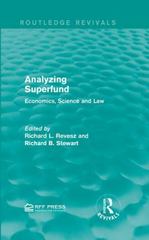Question
The Choice of Tax System and Its Implications for Economic Performance The government can affect total (aka national) saving in the economy in two ways:
The Choice of Tax System and Its Implications for Economic Performance The government can affect total (aka national) saving in the economy in two ways: directly, by changing its fiscal policy (the difference between T and G is public saving), and indirectly, by changing public policy that influences private saving. Many economists favor low tax rates on capital (e.g., corporate income tax; federal, state and local income tax; estate tax, etc.) and tax-exempt retirement accounts (e.g., IRAs) to encourage private saving by increasing the after-tax rate of return that savings earn. Taking that same logic further, some analysts have even proposed increasing the population's incentives to save by replacing income taxes with consumption taxes (e.g., sales taxes, or value-added taxes), so as to eliminate all tax penalty on saving. Consider a modest proposal: raising the annual amount that savers can put into tax- exempt retirement accounts. a) What would be the effect of such a proposal on the total (national) saving rate in the economy, and thus on the long-run growth prospects of the economy? b) What would be the effects of such a policy on economic growth in the short run? c) Aside from economic growth considerations, can you point to any other economic, political or social aspects that would be affected by such a move?
Step by Step Solution
There are 3 Steps involved in it
Step: 1

Get Instant Access to Expert-Tailored Solutions
See step-by-step solutions with expert insights and AI powered tools for academic success
Step: 2

Step: 3

Ace Your Homework with AI
Get the answers you need in no time with our AI-driven, step-by-step assistance
Get Started


